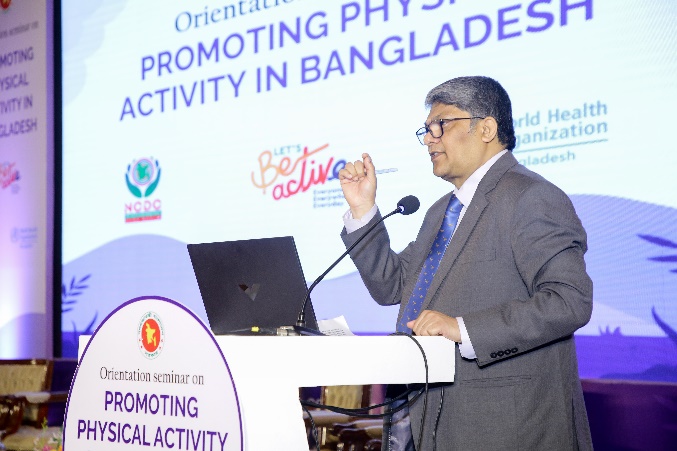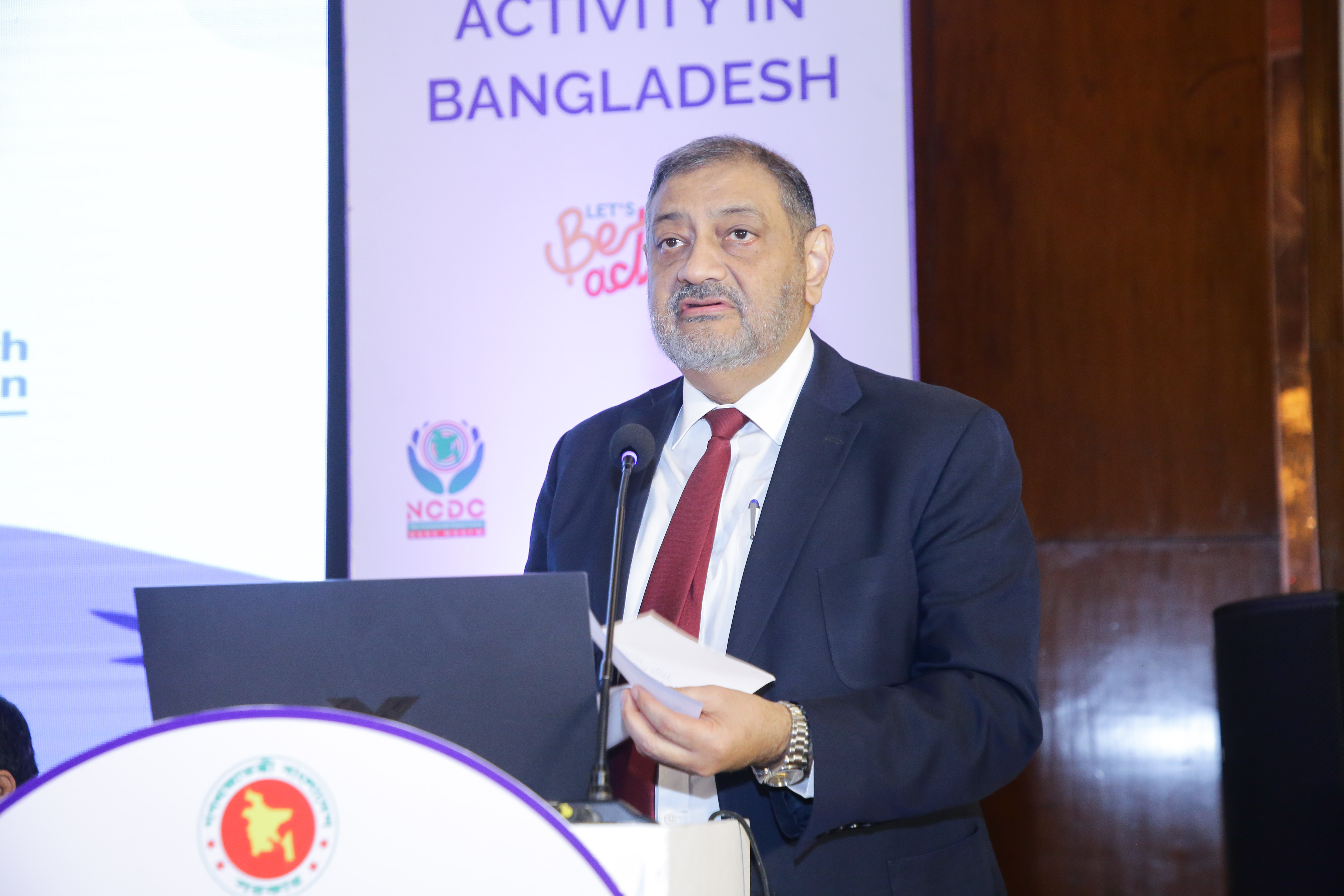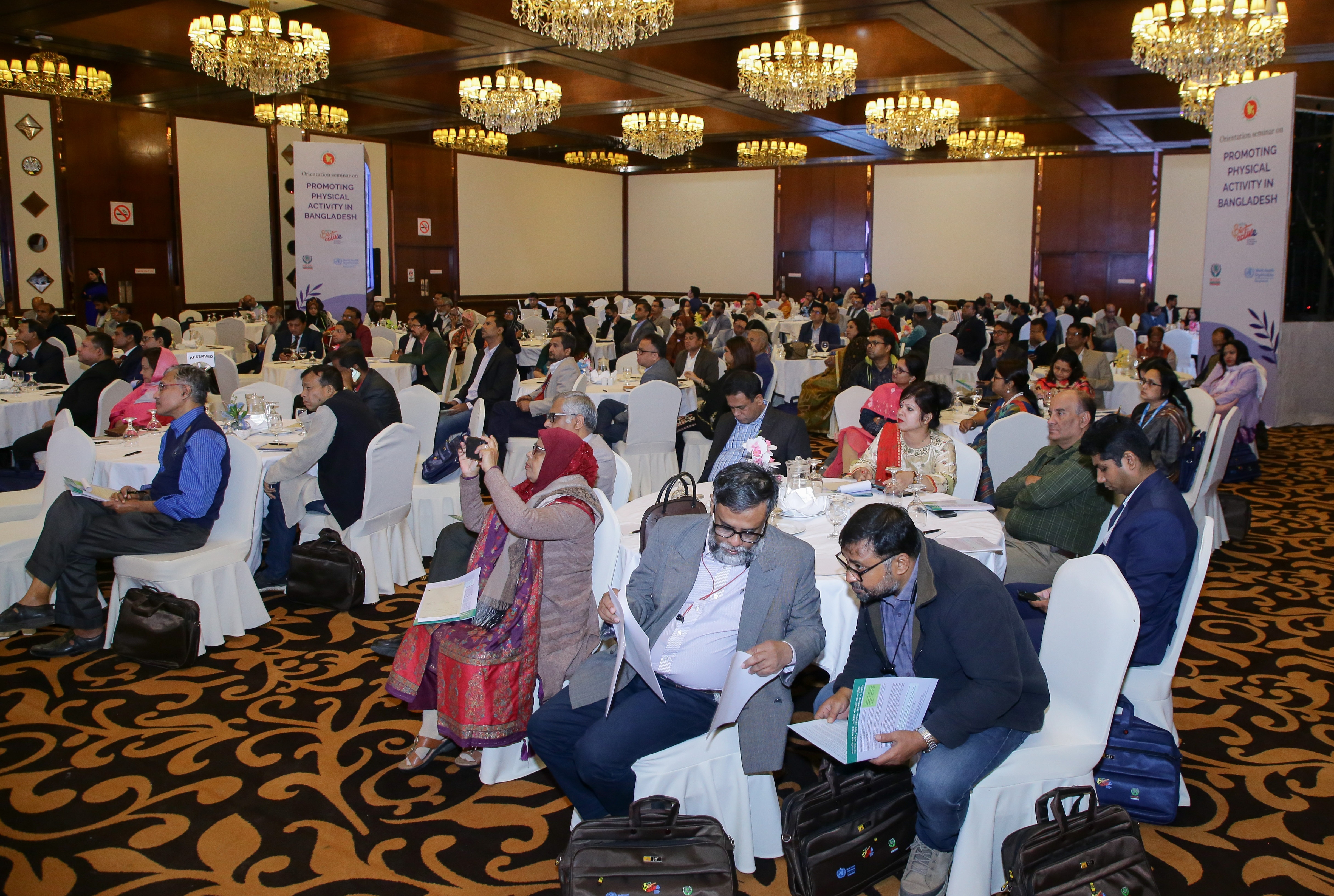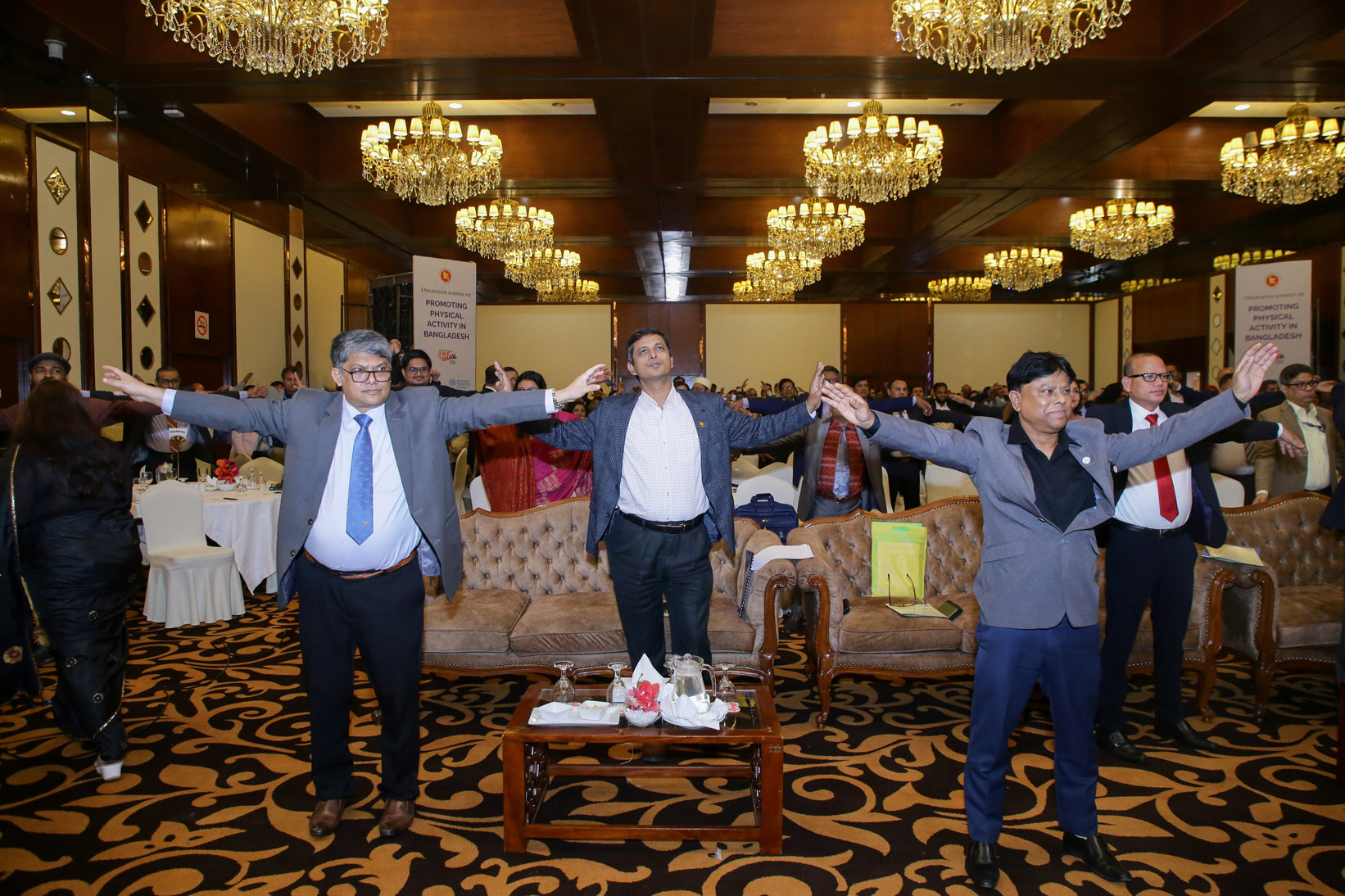Physical inactivity is one of the leading causes of premature death in the world. In Bangladesh, 14.6% of men and 23.9% of women are in insufficient physical activity, defined as less than 150 minutes of moderate-intensity weekly activity. Regular physical activity is proven to help prevent and manage non-communicable diseases such as heart disease, stroke, diabetes, and several cancers. WHO Global Action Plan on Physical Activity (GAPPA) 2018-2030 provides a strategic framework and proposes a set of policy measures to support Member States in advancing and expanding efforts to elevate physical activity levels.

Professor Dr Mohammad Robed Amin delivered his speech.
Photo credit: WHO/Bangladesh
With the technical assistance of the World Health Organization (WHO), the ‘Orientation Seminar on Promoting Physical Activity’ was organized by the Non-Communicable Disease Control Program (NCDC) of the Directorate General of Health Services (DGHS) on 13 December 2023 in Hotel Pan Pacific Sonargaon, Dhaka.
The program was chaired by Professor Dr Mohammad Robed Amin, Line Director of the NCDC. Prof. Dr Amin discussed non-communicable diseases and their chronic nature, emphasizing risk factors such as physical inactivity, unhealthy diet, and tobacco use. He highlighted the severe consequences of untreated non-communicable diseases, leading to premature death or long-term disability. Prof. Dr Amin expressed hope for disease prevention through increased physical activity and environmental awareness.
 Dr Bardan Jung Rana, WHO Representative to Bangladesh, delivered his speech.
Dr Bardan Jung Rana, WHO Representative to Bangladesh, delivered his speech.
Photo credit: WHO/Bangladesh
The special guests were Dr Md Akhtaruzzaman, Additional Secretary, Ministry of Health and Family Welfare (MoHFW), Mr Md Abdus Samad, Additional Secretary (Financial Management and Audit Wing), MoHFW, Professor Dr Ahmedul Kabir, Additional Director General (Planning and Development), DGHS, Professor Dr. Meerjady Sabrina Flora, Director, National Institute of Preventive and Social Medicine, Professor Dr Md Nazmul Islam, Director, Communicable Disease Control (CDC) Program, DGHS, and Dr Bardan Jung Rana, WHO Representative to Bangladesh. Dr Rana said, “Although NCDs pose a significant problem for public health in Bangladesh, there is hope, as these diseases can be prevented, and early death and disability can be avoided. By addressing common risk factors such as smoking, an unhealthy diet, and physical inactivity, we can prevent around 80% of heart diseases, strokes, Type-2 diabetes, and over 30% of cancers. Engaging in physical activities benefits everyone, making communities healthier, the economy stronger, and the nation more united.”
In the seminar, several issue-based presentations were presented by different organizations. Dr Fazla Alahi Khan, Program Manager, NCDC, DGHS, did his presentation on NCD burden & the Role of Physical inactivity. From WHO Bangladesh, Dr Farzna Akter Dorin, National Professional Officer - Policies for Prevention of NCDs, presented the importance of the multisectoral approach to promoting physical activity. The presentation on the results of the Situational Assessment Tool (SAT) for facilitating decision-making for scaling national action on physical activity was presented by Professor Rumana Huq, Executive Director, ARK Foundation, from the Center for Law and Policy Affairs (CLPA).

Senior officials from the Ministry of Youth and Sports, Ministry of Local Government, Ministry of Primary and Mass Education, Ministry of Education, Ministry of Housing and Public Works, Ministry of Communications, and Bangladesh Road Transport Authority actively participated in the seminar. Representatives from UNDP, UNICEF, UNESCO, and ILO; representatives from academia like Bangabandhu Sheikh Mujib Medical University (BSMMU) and National Institute Of Mental Health And Hospital (NIMH); media personalities; representatives from non-government and civil society organizations like National Heart Foundation of Bangladesh, Centre for Injury Prevention and Research, Bangladesh and physical activity champions, engaged in interactive conversations and dialogues focused on promoting physical activity across all age groups in our country.


During the seminar, participants discussed the significance of physical activity and its impact on overall health through diverse programs. Moreover, the participants highlighted the importance of GAPPA's four fundamental objectives: Active Environments, Active People, Active Systems, and Active Society. These objectives are essential pillars guiding efforts to promote and foster physical activity at multiple levels, encompassing environments, individuals, societal systems, and community engagement. For more information on the topics covered in this web story, please contact ssultana@who.int
